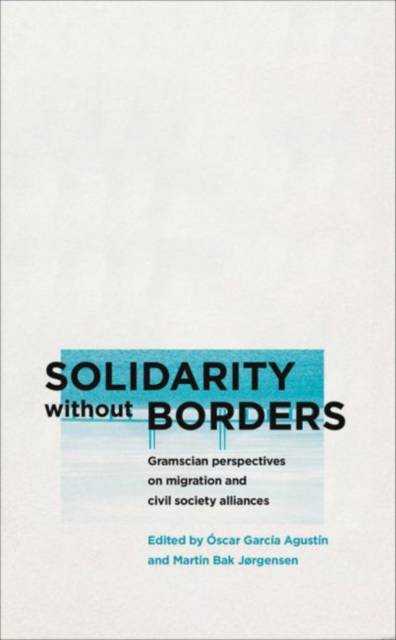
- Afhalen na 1 uur in een winkel met voorraad
- Gratis thuislevering in België vanaf € 30
- Ruim aanbod met 7 miljoen producten
- Afhalen na 1 uur in een winkel met voorraad
- Gratis thuislevering in België vanaf € 30
- Ruim aanbod met 7 miljoen producten
Solidarity without Borders
Gramscian Perspectives on Migration and Civil Society Alliances
Omschrijving
Solidarity without Borders reads the micropolitics of migrants as political actors within a Gramscian context by observing alliances between migrants and trade unions, worker organisations and other radical constituencies.
This book argues for Gramsci's theory of the formation of a transnational counter-hegemonic bloc, by studying methods of modern resistance and new forms of solidarity between these forming groups. With case studies of the Gezi Park Protests in Turkey, social movements in Ireland and the Lampedusa in Hamburg, the authors consider how diverse new migrant political actors, newfound cross-border alliances, and spaces of resistance shape the political dimensions of protest.
As migrants are often deprived of agency and placed outside the mobilisations taking place across Europe, Solidarity without Borders demonstrates how new solidarity relations are shaped and how these may construct a new common ground for struggle and for developing political alternatives.
Specificaties
Betrokkenen
- Uitgeverij:
Inhoud
- Aantal bladzijden:
- 240
- Taal:
- Engels
- Reeks:
Eigenschappen
- Productcode (EAN):
- 9780745336312
- Verschijningsdatum:
- 20/02/2016
- Uitvoering:
- Paperback
- Formaat:
- Trade paperback (VS)
- Afmetingen:
- 137 mm x 213 mm
- Gewicht:
- 381 g

Alleen bij Standaard Boekhandel
Beoordelingen
We publiceren alleen reviews die voldoen aan de voorwaarden voor reviews. Bekijk onze voorwaarden voor reviews.










